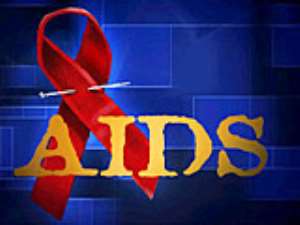
The Dutch capital, Amsterdam, is experiencing an alarming increase in HIV infections, centred around the city's southeast Bijlmer district . In this part of the city, the steep rise in the number of people acquiring the virus that can lead to AIDS is most noticeable in the communities of people from Africa and the Caribbean. Rates of infection within these groups are much higher than was previously assumed, and Dutch HIV researchers are warning of a potential epidemic.
Frank de Wolf from the Dutch HIV Monitoring Centre explains that the situation in southeast Amsterdam approximates the picture in large parts of Africa. Many of those with HIV acquired the virus before arriving in the Netherlands, but are unaware they are infected. The incidence of full-blown AIDS among African immigrants is also on the rise, which contrasts with a marked decrease among another risk group, homosexual men.
Emergency measures
Amsterdam Public Health Councillor Hannah Belliot recently unveiled a package of emergency measures aimed at combating the problem, including programmes to raise public awareness and for condom distribution. But targeting the specific groups in southeast Amsterdam, such as the Ghanaian community which is suffering the most, poses new problems. According to Frank de Wolf, the dissemination of HIV information to the male homosexual community was relatively simple by comparison:
In the old days, what you did was just get in touch with organisations of homosexual men, but […] the Ghanaian community is much more difficult to get into."
That makes the Ghanaian community, many of whom are living in the Netherlands illegally, a key target group. Their official status here is just one of the obstacles to be overcome in getting the right information across to what is, in many respects, a closed community. According to the city council, another issue is the fact that many Ghanaians practice polygamy, but won't mention that at all if they become ill. Councillor Belliot says it's taboos like that which need to be swept away.
Ghanaian women are particularly at risk. They currently make up around two thirds of the total number of women diagnosed with HIV in the Netherlands. In general, HIV – once a disease that predominantly infected men through homosexual transmission - has been showing a shift towards infection via heterosexual contact.
Churches as information providers
One route to contacting the Ghanaian community is religion. Amsterdam City Council plans to involve local community churches in getting the message across and, perhaps surprisingly, in handing out condoms. Ms Belliot also wants to see community centres and the local district council playing a role by organising discussion meetings and running advertising campaigns. But she thinks there may be other, as yet untried ways of making people in the Bijlmer aware of the AIDS problem. One of her proposals concerns introducing the theme of sexuality into the integration courses which all legal immigrants are now obliged to follow when they settle in the Netherlands.




 Lay KPMG audit report on SML-GRA contract before Parliament – Isaac Adongo tells...
Lay KPMG audit report on SML-GRA contract before Parliament – Isaac Adongo tells...
 Supervisor remanded for stabbing businessman with broken bottle and screwdriver
Supervisor remanded for stabbing businessman with broken bottle and screwdriver
 NDC watching EC and NPP closely on Returning Officer recruitment — Omane Boamah
NDC watching EC and NPP closely on Returning Officer recruitment — Omane Boamah
 Your decision to contest for president again is pathetic – Annoh-Dompreh blasts ...
Your decision to contest for president again is pathetic – Annoh-Dompreh blasts ...
 Election 2024: Security agencies ready to keep peace and secure the country — IG...
Election 2024: Security agencies ready to keep peace and secure the country — IG...
 People no longer place value in public basic schools; new uniforms, painting wil...
People no longer place value in public basic schools; new uniforms, painting wil...
 'Comedian' Paul Adom Otchere needs help – Sulemana Braimah
'Comedian' Paul Adom Otchere needs help – Sulemana Braimah
 Ejisu by-election: Only 33% of voters can be swayed by inducement — Global InfoA...
Ejisu by-election: Only 33% of voters can be swayed by inducement — Global InfoA...
 Minority will expose the beneficial owners of SML, recover funds paid to company...
Minority will expose the beneficial owners of SML, recover funds paid to company...
 Prof. Opoku-Agyemang has ‘decapitated’ the NPP’s strategies; don’t take them ser...
Prof. Opoku-Agyemang has ‘decapitated’ the NPP’s strategies; don’t take them ser...
